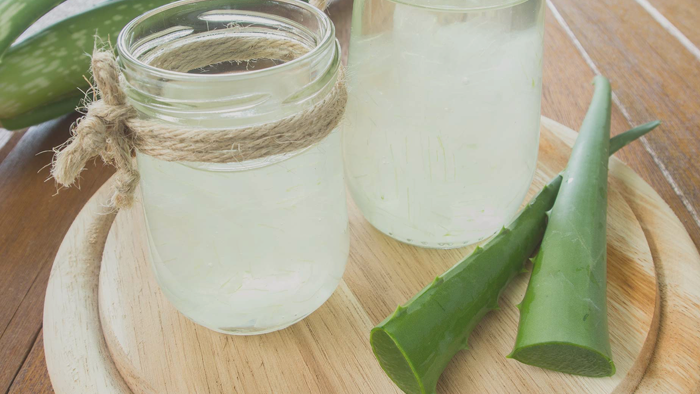
08 Sep Aloe vera L.
Aloe vera, an excellent source for healing skin inflammation, sores and burns, is widely known as one of the main ingredients in many skin care products today. Moreover, the plant’s over 200 active compounds, such as mannans, polysaccharides, lectins, and anthraquinones, make it an extremely beneficial plant for our health. From lowering cholesterol to improving cardiovascular functions, alleviating joint and muscle pain to curing gum diseases, aloe vera truly is a gift of wonder, and studies are still being conducted to discover more benefits this plant has to offer medicinal practices of cultures all around the world. Here’s a toast to aloe vera’s general detoxifying and health boosting qualities!
This week we present to you 10 interesting facts on aloe vera plant!
- Aloe vera is native to South and East Africa.
- It is a part of the lily family (Liliaceae), the same family to which garlic and onions belong.
- The great virtues of this plant have been recognised by many civilizations. The Ancient Egyptians dubbed it the ‘Plant of Immortality‘ while the Native Americans referred to it as ‘The Wand of Heaven.‘
- In the Bible, the plant was known as ahaloth, and was a perfuming agent.
- Ancient Egyptian women perfumed their private parts with it, whilst its woody stem was used to treat fever and plague.
- The Copts used aloe vera with other ingredients to treat eye diseases, swellings and digestive disorders. For the skin disease, psora, a recipe states: “If you take a baked cucumber and grind it with aloe, add wine and anoint the affected parts with it, they will heal.”
- Aloe vera’s power as an adaptogen balances the body’s system, stimulating the defence and adaptive mechanisms of the body. The adaptogenic properties within the plant help in the functioning of the digestive system. Aloe vera ensures better nutrient absorption, helps irritable bowel syndrome and keeps constipation, piles and other gastrointestinal conditions from damaging your system. Compounds of polysaccharides have the ability to cure ulcers, as many studies have shown that aloe vera helps ease Crohn’s disease, peptic ulcers and other digestive tract disorders.
- Alexander the Great conquered the island of Socotra which was lush with aloe vera in order to help treat his army of intestinal worms and wounds inflicted during battles.
- Aloe vera has an enzyme that is beneficial in stimulating hair growth. As shampoo, it improves blood circulation and keeps away stress and mental strain. In fact, the plant’s anti-inflammatory properties mean that it can effectively treat male baldness (Androgenetic Alopecia).
- Professor Daniel Valero, from the University of Miguel Hernández in Alicante, Spain has proved that a thin layer of aloe vera gel can act as a effective, natural food preservative. Immersing some table grapes into a bowl of aloe vera gel and keeping them in refrigerator temperatures, Professor Valero recorded that the table grape without aloe vera gel went bad in seven days, whilst the gelled aloe vera ones stayed fresh for more than 35 days and left its taste intact! The aloe plant has the potential to bring a new dimension to the food safety regulations around the world.
